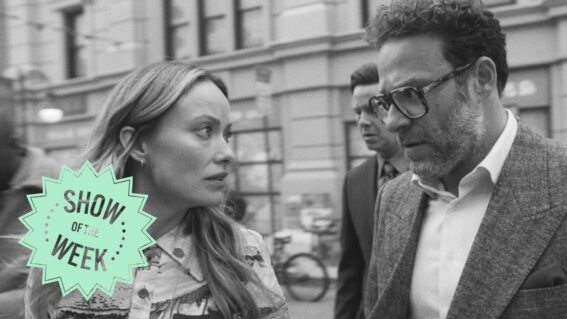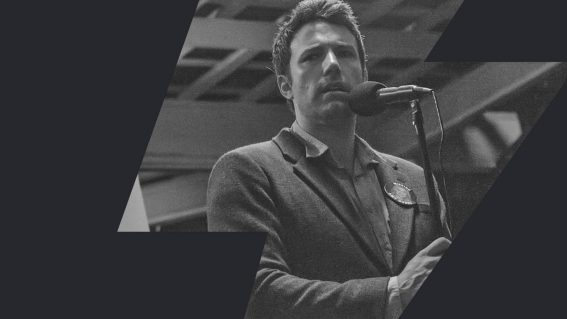Director of Oscar-nomimated doco talks Abacus: Small Enough to Jail
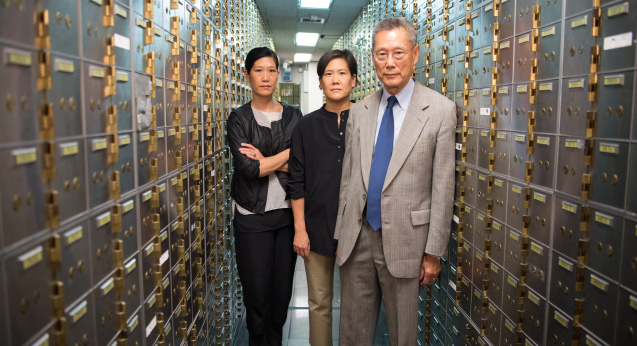

Just days ahead of this year’s Academy Awards, Aucklanders get a last chance to see Best Documentary nominee Abacus: Small Enough to Jail when it plays the Fraud Film Festival on Saturday March 3. We spoke to director Steve James about his doco, detailing the overzealous prosecution of a Chinese community bank in New York, while bigger, crooked, institutions went unpunished.
FLICKS: It must be a pretty exciting time of year for you, as you count down to the Academy awards, that’s freaking major, isn’t it?
Can you put your finger on what elements drew the Academy to the documentary?
The one thing I know for sure is that this film has been really good with audiences. The film has played in a lot of different settings, it premiered at the Toronto Film Festival back in 2016 and it’s been on the festival circuit more than any film I’ve had, and then it had a theatrical release and then it was on television twice now — and it’s still hanging around and still drawing people out to screenings that we’ve been doing in the last several weeks. So, I know it’s a film that just seems to play well with audiences, because I think they are really taken with the family there. They find them to be inspiring and entertaining which never hurts and then I think that they’re all so infuriated by the case and what the bank was put through and what the family was put through.
It gets people going in that regard, and so perhaps, too, the branch members of the doc, the doc branch in the Academy, who are the only people who have voted thus far. You know, they really gravitated to that aspect of the story, and I know a lot of people in the branch, I have a lot of friends in the branch, and I did hear from a lot of people leading up to the voting. Saying how much they like the film, and they went out of their way to tell me that.
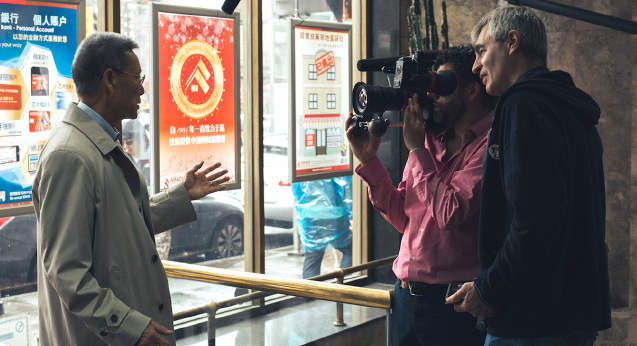
Against the backdrop of the GFC and financial mismanagement and widespread fraud at the top levels of other banks, here we see a very family-centric business being treated with unfairness. It does reduce some of these issues down to being a little bit more simple to understand, doesn’t it?
Yeah, I mean one of the fears with telling the story, besides the fact that we weren’t going to be in the courtroom, was that the trial itself is a fraud case. It’s not quote-unquote sexy in the way other criminal cases might be for an audience to watch. Although there were aspects to it that were so sort of crazy and outrageous they were entertaining, and we certainly try to feature some of those moments, but for such a low-level fraud case it was fairly complex.
The trial went on for 5 months, so it was a real challenge, I think, for us to find a way to highlight what was really important in the trial, both from the prosecution’s point of view and the defense’s. The key though, is that you really are identifying with this family and you feel for this family, and they really are the heart of this film.
One of the things I thought was how incredibly disappointing it is to see a system that’s failed to protect people, failed to protect people’s savings, failed to protect people financially and then actually turning on basically innocent people. Is that how it was to watch it up close?
That’s the way it felt to me, I mean, Abacus was in many respects the mirror opposite of the big banks. It was much smaller, we have a graphic in there that indicates that there, the 2651st largest bank in the country. They were community-oriented and had a had a real commitment to their community and building their community and that’s certainly one of the big complaints about the big banks, they’re just about making money not really about serving communities.
And the fraud that went on at Abacus – they discovered it. The big banks didn’t discover any internal fraud. They knew they were doing fraud and did everything they could to hide it. And, of course, to complete the mirror opposite the default rate on the loans was so low, it was one of the lowest in the country and none of the none of the loans under indictment defaulted.
In every respect it was like turning the world upside down, it was like Alice Through the Looking Glass, so to speak, in terms of this case. It did make a lot of people angry. It made me angry as a filmmaker documenting it, but also, more importantly, it made the Chinese-American community here in New York City particularly upset that this bank was being singled out.
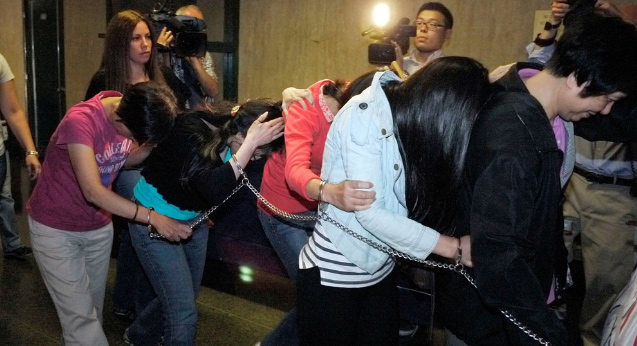
Putting the camera in front of District Attorney Cyrus Vance Jr., did you get the sense that making this film changed anything from his point of view? It’s quite embarrassing, an indictment of him, right?
I don’t think he has one bit of regret that he brought the case. I think his only regret is that they didn’t prevail and win. He steadfastly maintains, as does Polly Greenberg, who is the head of economic crimes unit, that they were in the right here. At least that that was the position they maintained even after the trial, which is when we were able to interview them.
I can appreciate their belief in their case, even though I profoundly disagree with it, but it is kind of odd. As one of the jurors says, after all the evidence was presented over this 5-month trial, which is an extremely long trial, it left him and, I think, other jurors with the belief or the question as to “why did they bring this case to begin with?” and I don’t know.
There was a lot thrown at the jury, there was a lot presented, but it did ultimately in so many ways boil down to the actions of Abacus. The president and the upper echelons of the management of the bank — Jill Sung; Mr. Sung’s daughter, Vera Sung — when they discovered the fraud they took action to try and root it out, and they were very cooperative with regulators and everyone to try and sort out the fraud and that those are not the actions of a bank that’s orchestrating fraud.
Whatever problems there were with the loans, they were not fraudulent because they performed extremely well and they made hundreds of millions of dollars and when it was over Fannie Mae [the US Govt mortgage agency] got back in business with Abacus because they’re good partners for them, because they’re such a responsible bank. It’s also brought out in the trial that Fannie Mae really understood that there are unique aspects to serving that community. There’s unique aspects to serving any immigrant community in which people work in a cash economy, where immigrants are gaining a foothold in the country. It’s not the same as making loans to, as the lawyer says in his closing, investment bankers.
I think the prosecution willfully chose to not understand that. They did their best to paint the entire community as liars and frauds and cheats and tried to sort of horrify the jury, which had no Chinese members or even Asian members, into believing that these immigrants are up to no good here. That’s what it felt like in the in the trying of this case.
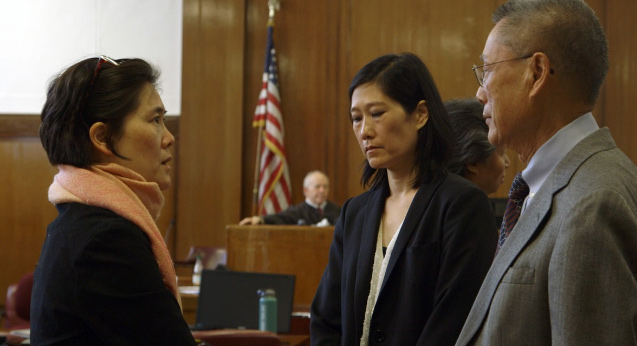
Your film actually strengthens the credentials of the bank, doesn’t it, because it makes an argument that a bank like Abacus is needed.
Absolutely. I mean, they’re a true community bank and they’re serving a role in the community that, unfortunately, increasingly, is rare in the American banking system. Community banks as a whole are in precipitous decline in this country due to the big banks. I belong to a community bank where I live and I wouldn’t have it any other way. There’s something about having your local community bank that serves you that just feels completely different.
Abacus: Small Enough to Jail
Fraud Film Festival
Saturday March 3, 1pm
ASB Waterfront Theatre





